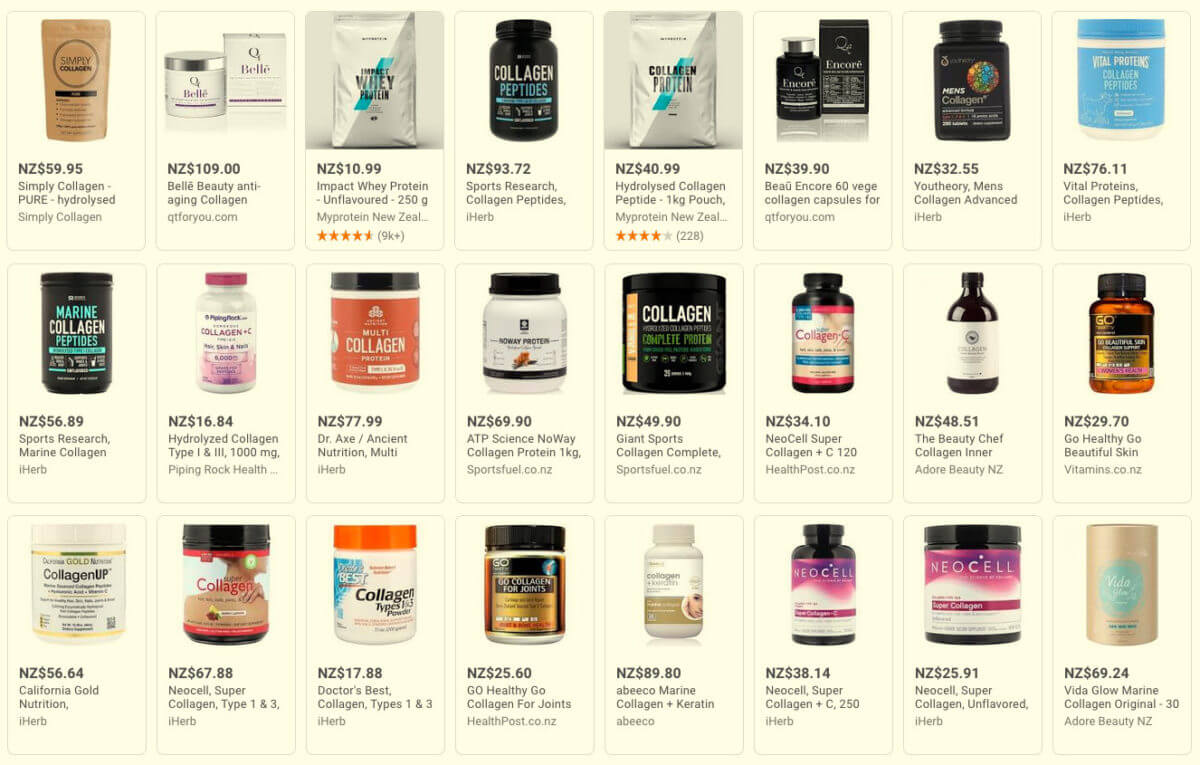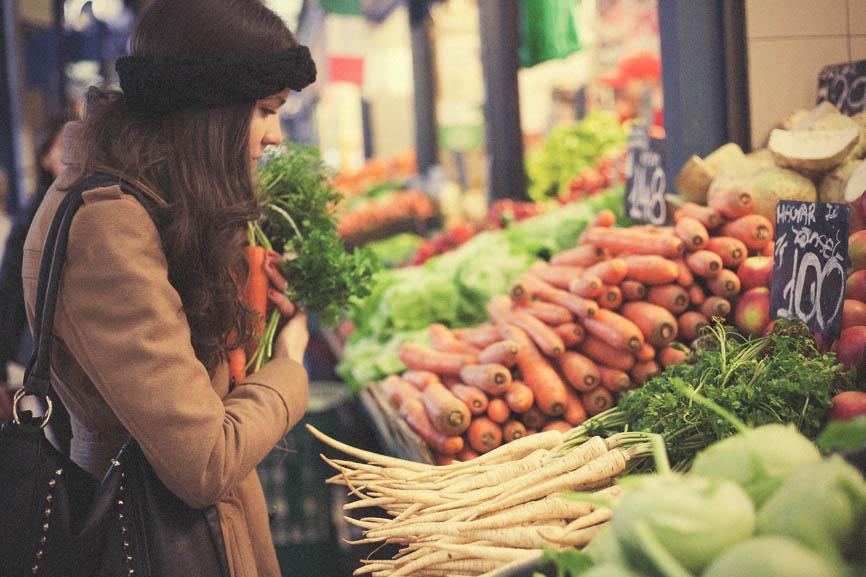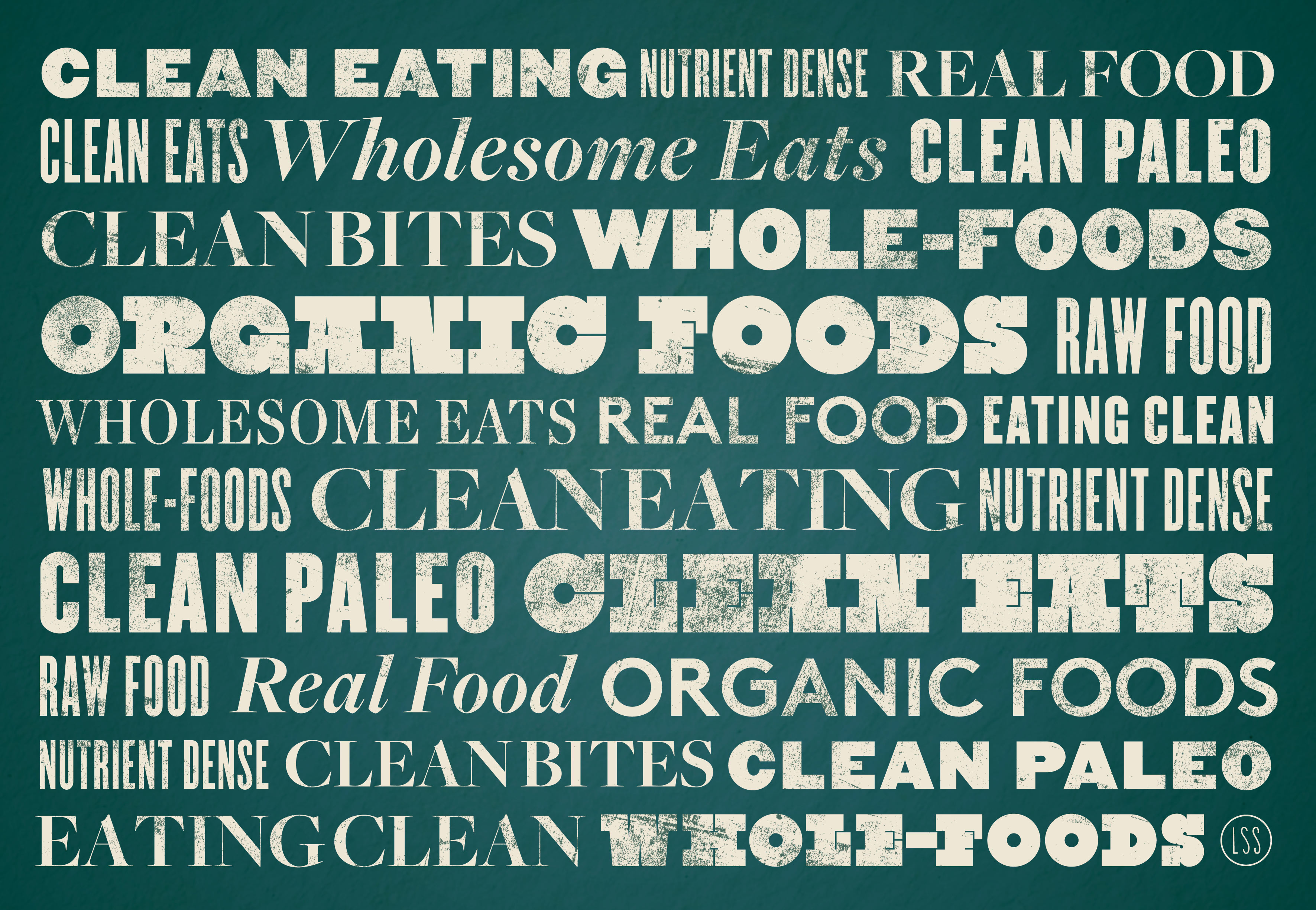
107—
Collagen supplements

There are many different names currently being bandied about to refer to a whole-food diet. Some health food advocates refer to this as ‘clean eating’, ‘nutrient dense food’, or ‘real food’.
However, regardless of this recent re-branding effort, the premise remains the same: whole-food is ‘in’, and refined food is ‘out’.
Contrary to what it may look like in social media, whole-food eating isn’t a recent discovery made by the younger generation. Naturopaths (and health veterans) have been spouting this doctrine for centuries…Well, at least since producers started stripping the nutrients out of our food, and replacing them with synthetic additives.
Considering the state we’ve allowed our food-chain to get into, you could forgive the younger generation for thinking that we are pretty daft when it comes to our health and knowing what to eat for our well-being!
On the whole, dietary wisedom was mostly lost in previous generations, where new technology was used to make food ‘better’ — at the expense of good nutrition. The younger generation experienced the regrettable backlash of this — sub-standard genes, and therefore sub-standard health.
Well, things are changing. It’s ironic now, that this younger generation is utilising technology to make themselves ‘better’ — by learning about health and by re-educating the masses.
There are now many health conscious facebook pages, instagrams, and blogs toting what can only be described as ‘extreme diets’ (Paleo, Vegan, and Raw). The world of health would seem to be a new and exciting area of interest for these young-uns. And, they are pushing their recently formed opinions on us ‘big-time’.

Don’t get me wrong, I love the enthusiasm, the passion, and some of the recipes these youngsters generate on their social media sites. However, what I don’t like is, when they try to make the familiar unfamiliar — as it makes my job working with clients more difficult. I’m talking about the ‘catch-phrases’ they use to describe what they think you should be eating e.g clean eating, nutrient dense, and real food.
Note: I actually refer some of my clients to certain blogs to gather appropriate recipes for particular dietary recommendations I give them.
These new catch-phrases aren’t helpful. I have found over the years, that people are still confused as to what constitutes a whole-food diet, let alone any of the new catch-phrase diets…
Note: I think whole-food is an easier term to understand than the other slogans used to describe this category of food!
Should we really have to refer to whole-food as anything other than food? To differentiate, why not just refer to processed food, unhealthy food, junk food, gut-rot as non-food!
It would promote food that you have to wash and disassemble as it ‘contains’ dirt, slugs, feathers, bones etc.
Note: I bet I could start a real social media frenzy with that one! PS: I’M JOKING..!!
It also worries me when a business uses social media to promote itself as providing ‘real food’. I think they may be getting a little carried away, or confused…? And I fear they are then passing this confusion on to their followers. They’re causing them to get carried away about something that already exists in the majority of eating establishments (and their own home)!
What these social media sites are actually passing off as ‘the real deal’ is simply their preferred genre of eating i.e. Paleo, Vegan, or Raw (which for many reasons may not suit everyone’s dietary requirements).
What do they think the majority of ‘decent’, independently run cafes and restaurant offer, if not real food? Any establishment that valued their profession, and their reputation would also be using good quality ‘real food’ ingredients to ensure the tastiest dish possible.
Note: Good Lord, you only have to watch ‘Master Chef’, or ‘My Kitchen Rules’, or ‘Hell’s Kitchen’ to see how important the ingredients are to the end-product. We’re not talking about McCafe, or McDonald’s Family Restaurants here!
If you’re worried that there may be some white flour, or white sugar used in one of the pastry delights on display at a ‘regular’ cafe or restaurant… then simply avoid it, and order a proper meal instead!
Or, maybe just say to ‘hell with it’, and treat yourself to it anyway! Please see my Adult Treat System post.
Note: Chefs are generally quite happy to whip you up something gluten-free OR dairy-free (if you’re actually intolerant to, or ethically challenged by a certain food group).
The term whole-food is confusing enough (for some), without introducing new terminology that means the same thing.
I suggest that no matter what your health ‘bent’ (Paleo, Vegan, Health Enthusiast, or Health nonplussed) that we could agree on one thing — that we are all promoting in one way or another — wholefoods.
If we all understand the concept, and we all get behind this over-riding ‘describing word’ for the food we are supposed to eat, then eventually it may also come to describe the majority of our diets .
It’s hard to know who to listen to these days because we’re so inundated by over-enthusiastic ‘health food experts’ in social media. Therefore, this is what I recommend you do:
Take their advice with ‘a grain of salt’. Their health advice often comes just from their own personal experience, so may not apply to you, or even to most people.
But, if you like what they have to say — then apply their advice to your lifestyle. If it doesn’t prove effective in improving your health, then simply make an appointment to see a Naturopath.
Lisa Fitzgibbon is a degree qualified (2006), experienced and registered Naturopath & Medical Herbalist. She runs her own private practice – OOMPH in Grey Lynn, Auckland, New Zealand.
Lisa has been involved in the Natural Health industry for 16 years. She draws on her professional training and experience, as well as her own personal experience to bring you realistic, holistic health advice.
Book onlineSubscribe to LISA SAID SO
Subscribe to the LSS newsletter to get updates on a very irregular basis.
Sorry for the interruption!
You seem to be interested in what Lisa has to say. To be updated when new articles are published, or we have news to share, enter your email below. Thanks!